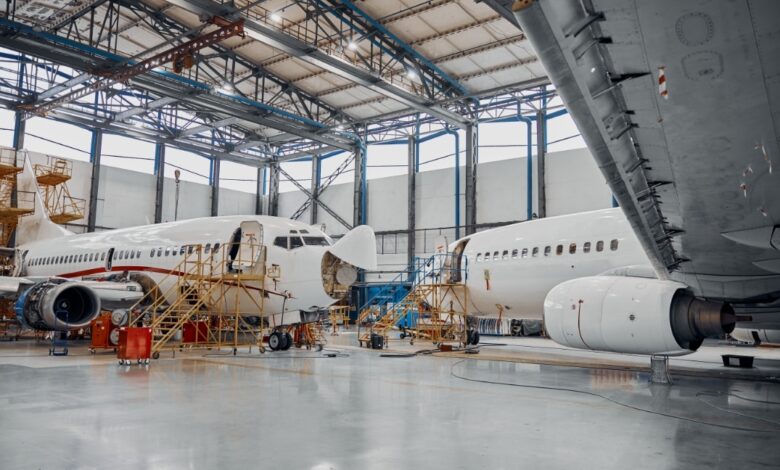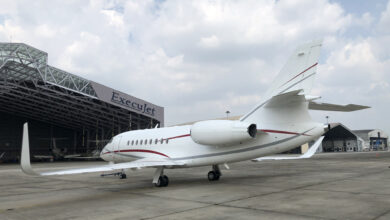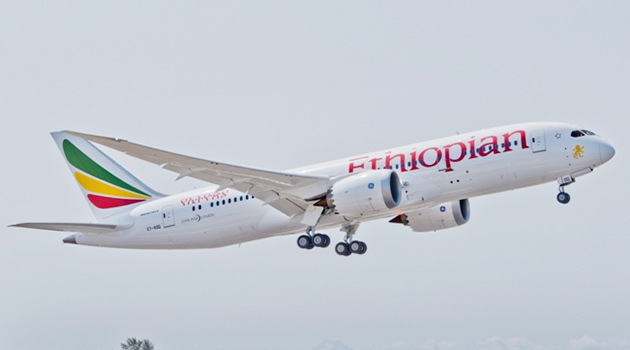Taking Off: Why Africa’s Maintenance, Repair and Overhaul Sector is Poised for a Boom

By Sajedah Rustom and Steve Duley
Africa’s aviation industry is experiencing a remarkable transformation, driven by a burgeoning Maintenance, Repair, and Overhaul (MRO) sector. With increasing air traffic, emerging aviation hubs, and robust government support, Africa is positioning itself as a critical player in global aviation maintenance. Let’s explore the key factors propelling Africa’s MRO sector to new heights, and why this trend is set to reshape the continent’s aviation landscape.
What Are the Drivers Fueling Africa’s MRO Growth?
- Booming Air Traffic
The demand for air travel across Africa is rising steadily, leading to an expansion in airline fleets. This growth necessitates frequent and comprehensive MRO services. “The rising demand for air travel in Africa has led to an expansion of airline fleets, creating a greater need for MRO services to maintain and repair aircraft,” says Sajedah Rustom, CEO of AviaPro Consulting. As more aircraft take to the skies, the need for reliable maintenance services becomes ever more critical, ensuring the safety and efficiency of air travel.
- Aviation Hub Formation
Across the continent, countries are establishing themselves as regional aviation hubs. These nations are attracting MRO providers keen to serve both local and international airlines. “Countries like South Africa, Ethiopia, Kenya, and Morocco have emerged as regional aviation hubs, attracting MRO providers to set up or invest further in facilities and serve both local and international markets,” adds Rustom. The strategic positioning of these hubs facilitates efficient servicing of aircraft, reducing downtime and operational costs.
- Partnerships for Progress
Collaboration is key in the MRO sector. African MRO companies are increasingly forming partnerships and joint ventures with international firms. These alliances bring much-needed technology, expertise, and capital, enhancing local capabilities and competitiveness. “African MRO companies often collaborate with international firms through partnerships and joint ventures to access technology, expertise, and capital, enhancing their capabilities and competitiveness,” notes Rustom. These partnerships are instrumental in transferring knowledge and elevating service standards across the continent.
Investing in the future means building a robust MRO ecosystem, according to AviaPro Consulting’s Business Development Executive in charge of Africa, Steve Duley.
According to the South African aviation expert, “a skilled workforce is the backbone of any successful MRO operation”, and Duley says he’s already seeing African nations, such as South Africa, Ethiopia, Kenya, Senegal, Morocco and Egypt, amongst others, investing heavily in training and upskilling local talent to meet the growing demand for qualified technicians, engineers, and maintenance personnel.
This focus on education ensures a steady supply of proficient professionals dedicated to maintaining high safety and quality standards.
Safety & Quality First
Safety is paramount in aviation, and African MRO providers are investing heavily in quality management systems, ensuring compliance with industry best practices and enhancing trust among global airlines. “MRO providers in Africa are investing in quality management systems, adherence to international standards, and certification processes to ensure compliance and uphold industry best practices,” explains Steve Duley.
African MRO companies are not just sticking to traditional services. They are expanding their offerings to include component repair, avionics upgrades, and cabin refurbishments, catering to the evolving needs of airlines and aircraft operators. “Beyond traditional MRO services, African companies are diversifying their offerings to include component repair, avionics upgrades, cabin refurbishment, and other value-added services to meet the evolving needs of airlines and aircraft operators,” highlights Sajedah Rustom. This diversification ensures comprehensive support for all aspects of aircraft maintenance.
Building Infrastructure and Market Potential
A solid infrastructure foundation is essential for expanding MRO capabilities. Investments in airport infrastructure, including hangars, maintenance facilities, and logistics, are critical to supporting the growing MRO sector. “Investments in airport infrastructure, including hangars, maintenance facilities, and logistics infrastructure, are supporting the expansion of MRO capabilities across the continent,” says Rustom. These developments enhance the efficiency and capacity of MRO operations, making Africa a more attractive destination for aircraft maintenance.
The African aviation market presents significant growth opportunities due to urbanization, economic development, and increasing connectivity. This potential is attracting investments from both domestic and international MRO providers. “The African aviation market presents significant growth opportunities due to factors such as urbanization, economic development, and increasing connectivity, attracting investments from both domestic and international MRO providers,” notes Rustom. This influx of investment is vital for sustaining growth and innovation in the MRO sector.
Despite the promising outlook, the African MRO sector does face several challenges.
Regulatory complexities, a limited local supplier base, access to financing, and regional instability pose hurdles to sustainable development. However, the sector’s resilience and adaptability continue to drive progress. “Despite the growth prospects, challenges such as regulatory complexities, limited local supplier base, access to financing, and geopolitical instability in some regions pose hurdles to the sustainable development of the aerospace MRO sector in Africa,” acknowledges Rustom.
A Promising Future is Already at Work
The future of Africa’s MRO sector is bright. By capitalizing on market growth, embracing technological advancements, and fostering strategic partnerships, Africa’s MRO industry can ensure safe and reliable air travel while contributing significantly to economic development and job creation across the continent.
As Sajedah Rustom puts it, “The MRO sector in Africa has already begun to meet the demands of a dynamic aviation industry, driven by factors such as market growth, technological advancements, and strategic partnerships, with the potential to contribute to economic development and job creation on the continent.”
By embracing these trends and overcoming challenges, Africa’s MRO sector is set to soar, ensuring the continent’s aviation industry reaches new heights.





